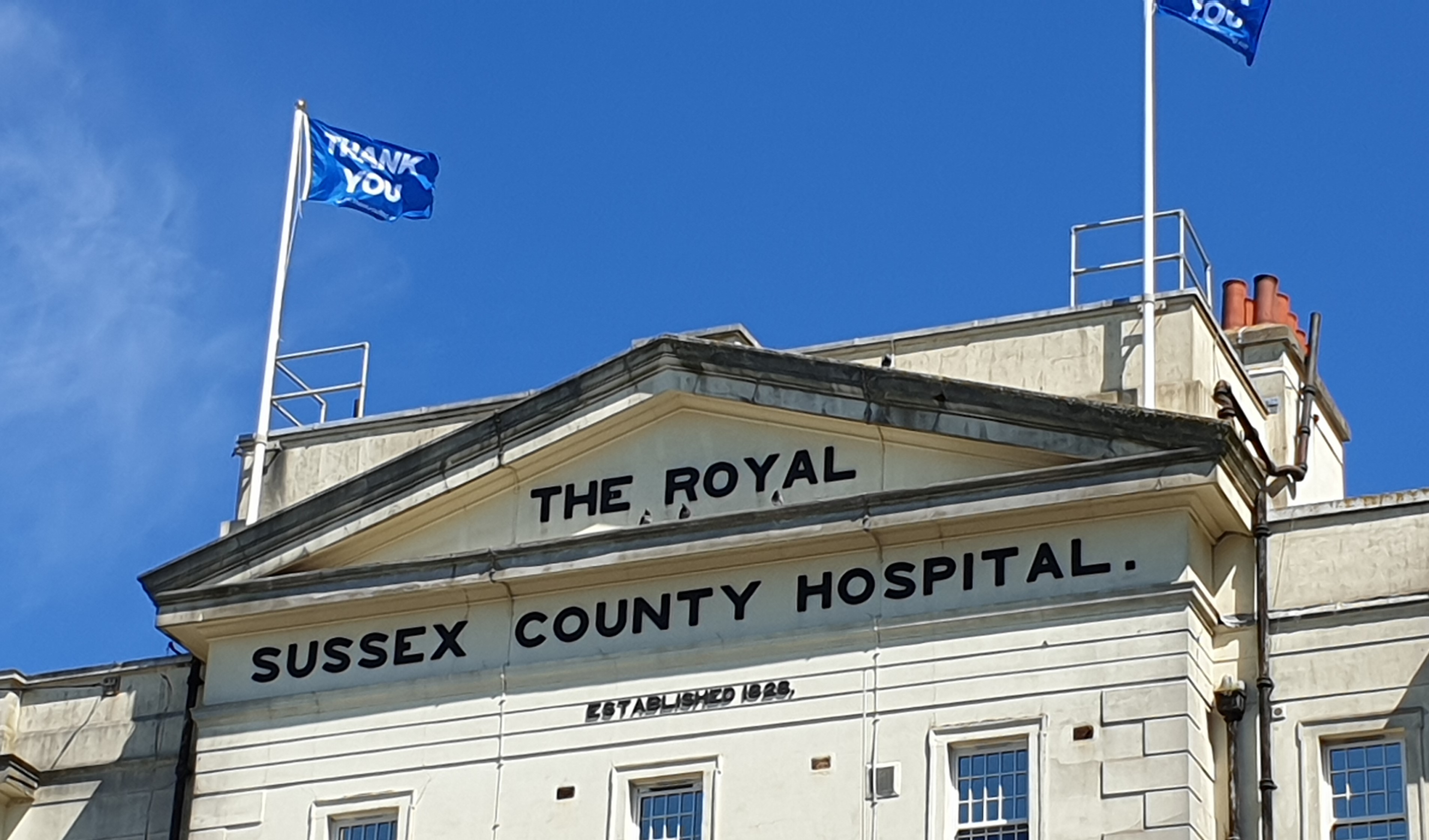Brighton hospital bosses have been told to make urgent improvements after surgery and maternity services were found to be unsafe, inadequate and poorly led.
The findings came in a report by the Care Quality Commission (CQC) about the Royal Sussex County Hospital in Brighton which identified a bullying culture – and where staff said that they were told to stop reporting unsafe staffing levels.
The report, published today (Friday 10 December), said: “We carried out this unannounced focused inspection … because we received information of concern about the safety and quality … from several sources about the maternity and surgery services across the hospital.
“This included staff whistleblowing, patient complaints and information from other regulatory bodies.”
Similar inspections were carried out at other hospitals run by the same trust, University Hospitals Sussex, which was created in a merger of two existing NHS trusts earlier this year.
The CQC said: “After the inspection, a warning notice was issued to the trust requiring it to take action to ensure significant improvements were made to staffing, training, governance and the overall culture of the services, to ensure the safe care and treatment of patients.”
The rating for surgery and maternity at the Royal Sussex County Hospital both dropped from “good” to “inadequate” overall.
The CQC said that this was the first rated inspection since Western Sussex Hospitals merged with Brighton and Sussex University Hospitals NHS Trust in April. To read the trust’s response, click here.
The official watchdog said: “Throughout the trust’s four maternity departments, inspectors found … departments did not have enough staff to care for women and babies to keep them safe.
“Staff were not up to date with training in key skills.
“Women attending the triage service were not managed on the basis of risk. Instead, individual risks were assessed in a subjective way.
“Leaders at … the Royal Sussex County Hospital were felt to be far less visible and accessible (than those in other hospitals).
“At the Royal Sussex County Hospital, inspectors found not all infection risks were controlled well. Leaders did not support staff to develop their skills. Staff did not feel respected, supported and valued. Staff collected safety information but this was not always accurate.
“During the inspection of surgery at the Royal Sussex County Hospital inspectors found theatre lists often operated with fewer staff than required.
“Infection prevention and control practices were not consistently applied. Not all staff were up to date with emergency life support training.
“The service did not manage safety incidents well and did have the time to learn lessons from them. Managers were not running services well in order to support staff to develop their skills.
“Staff did not feel respected, supported and valued and were not always clear about their roles and accountabilities.”
The CQC’s deputy chief inspector hospitals, said: “We are acutely aware of the pressure that the NHS is under and how hard staff are working to provide good care for patients.
“So when staff are brave enough to raise concerns with us, we owe it to them, as well as to patients, to inspect services so there is transparency around the challenges being faced that can lead to increased support and improvement.
“Inspectors saw the impact that staffing shortages were having in both surgery and maternity at University Hospitals Sussex NHS Foundation Trust, with delays in patients accessing emergency surgery, and women in the maternity assessment unit waiting up to six hours to be assessed by a doctor.
“Midwives told inspectors that they had too many women to care for at one time in the ante-natal, post-natal and triage area and they were frightened of missing a deteriorating woman or baby.
“Staff also told us they often did not have time during their shifts to report patient safety incidents and only reported what they considered to be serious incidents after their shift had finished.
“They told us they been instructed to stop reporting low staffing as an incident as it was a known risk.
“Staffing shortages are a national problem affecting the health and care system as a whole.
“However, while some other trusts have put steps in place to mitigate the impact of the risks posed by staffing shortages on patients and staff, this was often not the case at University Hospitals Sussex.
“We also found that not enough had been done to ensure that staff were listened to when they raised concerns, with the result that they described feeling unsupported and undervalued.
“Other concerns raised with inspectors by staff, or observed by inspectors, included a poor culture – bullying and harassment was reported by some staff – and a perception that leaders were doing little to address concerns.
“After listening to staff about their experiences working in main theatres and recovery, inspectors had serious concerns about the culture among colleagues.
“It was clear that the integration of the different hospital sites was still a long way from being complete – and that this integration would have posed a significant leadership challenge, even without the wider difficulties currently faced by the NHS.
“We have highlighted areas for urgent local improvement and University Hospitals Sussex has developed a detailed improvement plan.
“But the trust will need also additional support from the wider system in order to overcome these challenges and ensure that its staff are supported to deliver safe, high-quality care.”









